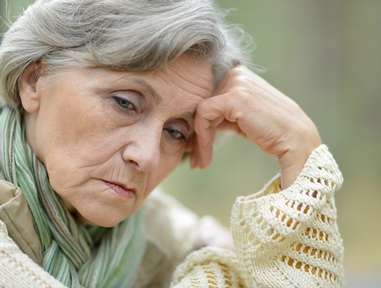Women over 70 urged to check for symptoms of breast cancer
About one in three women diagnosed with breast cancer each year are aged 70 or over, yet many older women are unaware of some of the early warning signs of breast cancer, according to a survey. Fewer than half of the women over 70 who were questioned could name a symptom, apart from a lump.

The government health agency, Public Health England (PHE), which organised the survey, said that older women were also more likely to delay going to their GP. A campaign organised by PHE, called Be Clear on Cancer, is urging older women to visit their doctor if they notice breast changes, such as a lump or a change to the nipple, skin or the shape of the breast.
Dr Ann Hoskins, PHE deputy director, said: “This campaign aims to target women aged 70 and over, as we know that many women of this age group are unaware of the risk breast cancer poses to them. They also tend to have lower knowledge of the symptoms of breast cancer, and are not necessarily looking at or feeling their breasts so are less likely to detect change.
“This campaign emphasises that a lump is not the only sign of breast cancer and women should tell their GP if they notice any changes to their breasts.”
Around 13,400 women aged 70 and over are diagnosed with breast cancer each year, accounting for a third of all breast cancer cases.
Breast cancer is the most common cancer in women in England, with around 41,200 women diagnosed every year. National figures show that around 9,500 women die from breast cancer each year and more half of these, around 5,400, are women aged 70 and over. This equates to around 15 women aged 70 and over dying from breast cancer in England every day.
Early diagnosis of breast cancer is crucial and means treatment is more likely to be successful. If breast cancer is diagnosed at the earliest stage in women aged 70 and over, 93 per cent will live for at least another 5 years. This figure drops to just 13 per cent for those diagnosed at the most advanced stage.
It has been estimated that across all age groups around 2,000 deaths from breast cancer could be avoided each year in England if survival rates matched the best in Europe. The Be Clear on Cancer campaign therefore has an important role to play in helping increase symptom awareness levels and earlier diagnosis.
Sean Duffy, national clinical director for cancer at NHS England, said: “Early diagnosis of cancer is absolutely critical to improving survival. Part of this is helping people understand what symptoms to look out for, which is why campaigns like this are so important.
“Women with possible early signs and symptoms should visit their GP so where necessary they can be referred for tests, and treatment can start quickly. Early diagnosis is a key focus for us and will form part of the NHS’s new plan for cancer, currently being developed by an independent taskforce.
Richard Sutton, breast cancer surgeon at Royal United Hospital Bath, said: “I often hear my patients say how they delayed going to their GP. They may not think their symptom is serious, they may be embarrassed or didn’t want to waste the GP’s time. Most people are aware that a lump in the breast could be a symptom of cancer, but they don’t know that changes to the skin of the breast or the nipple could also be signs of cancer.
“As a specialist surgeon, it concerns me that the awareness of the importance of these symptoms is even lower amongst older women. The risk of developing breast cancer increases with age, so don’t dismiss any persistent or unusual changes to your breasts as a sign of aging, speak to your GP – finding breast cancer early makes it more treatable and could save your life.”
For more information on the signs and symptoms of breast cancer, please visit nhs.uk/breastcancer70
Latest News
 29-Jul-24
Dementia Bus gives carehome.co.uk staff insight into life with dementia
29-Jul-24
Dementia Bus gives carehome.co.uk staff insight into life with dementia
 01-Mar-24
Find out the top care homes in 2024
01-Mar-24
Find out the top care homes in 2024
 21-Mar-23
UK's top care homes in 2023 revealed
21-Mar-23
UK's top care homes in 2023 revealed
 03-Jan-23
carehome.co.uk launches free care helpline
03-Jan-23
carehome.co.uk launches free care helpline
 13-Dec-22
5 mins with Emily Whitehurst, chief operating officer for Constantia Healthcare
13-Dec-22
5 mins with Emily Whitehurst, chief operating officer for Constantia Healthcare